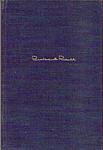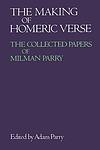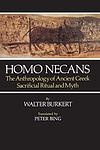The Greatest "Greece, Nonfiction" Books of All Time
Click to learn how this list is calculated.
This list represents a comprehensive and trusted collection of the greatest books. Developed through a specialized algorithm, it brings together 300 'best of' book lists to form a definitive guide to the world's most acclaimed books. For those interested in how these books are chosen, additional details can be found on the rankings page.
Genres
The "Greece" category of books encompasses literature that is set in or inspired by the country of Greece. This can include historical fiction, mythology, travel writing, and contemporary novels that explore Greek culture, history, and society. These books often feature themes of ancient mythology, philosophy, and the country's rich history, as well as its modern-day struggles and triumphs. The Greece category offers readers a diverse range of stories that capture the essence of this beautiful and complex country.
Countries
Date Range
Reading Statistics
Click the button below to see how many of these books you've read!
Download
If you're interested in downloading this list as a CSV file for use in a spreadsheet application, you can easily do so by clicking the button below. Please note that to ensure a manageable file size and faster download, the CSV will include details for only the first 500 books.
Download-
1. The Histories of Herodotus by Herodotus
"The Histories of Herodotus" is an ancient text that provides a comprehensive account of the Greco-Persian Wars. It is often considered the first work of history in Western literature. The author, often referred to as the 'Father of History', provides a narrative that not only discusses the conflicts between the Greeks and Persians, but also delves into the customs, geography, and history of each civilization. This detailed and pioneering work has greatly contributed to our understanding of the ancient world.
-
2. The Complete Works of Plato by Plato
This comprehensive collection compiles the philosophical works of an influential Classical Greek philosopher. The book includes his dialogues, letters, and philosophical musings, exploring topics such as justice, beauty, truth, mathematics, politics, love, and virtue. The philosopher's ideas, including the theory of forms, the allegory of the cave, and the philosopher king, have had a profound impact on Western thought and continue to be studied and debated in modern philosophical and academic circles.
-
3. The Nicomachean Ethics by Aristotle
This philosophical work focuses on the concept of ethics, specifically virtue ethics, and how it relates to a person's character and happiness. The author argues that happiness is the highest good and the end goal of life, and that it is achieved not through pleasure, but through virtuous actions. The book also explores the nature of practical reasoning, the different kinds of virtues, the importance of friendship, and the role of luck in human welfare.
-
4. Parallel Lives by Plutarch
"Parallel Lives" is a collection of biographies of famous Greek and Roman figures, written in pairs to draw comparisons between their lives. The work explores the influence of character on the lives and destinies of these historical figures. The biographies are not only a record of the lives of these individuals, but also provide insight into the times in which they lived, offering a unique perspective on the history and culture of the ancient world.
-
5. The History of the Peloponnesian War by Thucydides
This book is a historical account of the Peloponnesian War between the city-states of Athens and Sparta in ancient Greece. The author, an Athenian general, provides a detailed narrative of the war, its causes, and its consequences, offering valuable insights into the political and social dynamics of the time. The work is considered a pioneering piece in the field of history due to its rigorous methodology and critical analysis of events.
-
6. Mythology by Edith Hamilton
This book is a comprehensive guide to ancient Greek, Roman, and Norse mythologies, providing detailed accounts of various gods, goddesses, heroes, and other mythological creatures. It includes well-known stories like the Odyssey and the Iliad, along with lesser-known tales, and analyzes their significance in the cultures they originated from. The book also delves into the origins of these myths and their influence on later civilizations, offering readers a deep understanding of ancient cultures and their belief systems.
-
7. My Family And Other Animals by Gerald Durrell
In this humorous and heartwarming memoir, a young boy named Gerald Durrell recounts his unconventional upbringing on the idyllic Greek island of Corfu. Surrounded by a colorful cast of eccentric family members and a menagerie of unique animals, Gerald's adventures and misadventures bring joy and laughter to readers as he navigates the wonders of nature and the challenges of growing up. With vivid descriptions and witty anecdotes, this book is a delightful tribute to the beauty of the natural world and the bonds of family.
-
8. Symposium by Plato
In "Symposium", a group of notable men including philosophers, playwrights, and politicians gather at a banquet and decide to each give a speech in praise of the god of love. Each speech presents a different perspective on love, ranging from the purely physical to the spiritual. The dialogue culminates with the speech of Socrates, who presents a philosophical view of love as a means of ascending to contemplation of the divine.
-
9. Apology by Plato
This philosophical text is a dialogue of Socrates' defense in 399 BC against the charges of 'corrupting the young, and by not believing in the gods in whom the city believes, but in other daimonia that are novel.' The dialogue is Socrates' defense at his trial and is his final public statement before his execution. In it, he discusses the moral and philosophical justification for his actions and beliefs, ultimately leading to his conviction and death.
-
10. Phaedo by Plato
"Phaedo" is a philosophical dialogue that takes place in ancient Greece, where the main character, a philosopher, is awaiting his execution. The story is a discussion on the nature of the afterlife, the immortality of the soul, and the theory of forms. The philosopher argues that the soul is immortal and that we should not fear death. He also discusses his theory of forms, stating that the world we perceive is merely a shadow of the true world of forms. The dialogue ends with the philosopher calmly accepting his fate, illustrating his belief in the immortality of the soul.
-
11. The Mediterranean And The Mediterranean World In The Age Of Philip Ii by Fernand Braudel
This seminal work offers a comprehensive analysis of the Mediterranean region during the 16th century, focusing on the complex social, political, and economic landscapes that defined the era of Philip II of Spain. The book transcends traditional historiography by emphasizing the geographical and ecological factors that shaped human activity, from the ebb and flow of commerce and the patterns of agrarian life to the rise and fall of empires. Through a meticulous study of the Mediterranean world, the narrative weaves together the intricate tapestry of cultures, religions, and power dynamics that characterized the period, providing a vivid portrayal of the enduring influence of the environment on the course of human history.
-
12. Poetics by Aristotle
This book is a seminal work of literary criticism that has profoundly influenced western thought. The book discusses the nature of poetry, tragedy, and comedy, as well as the components that make up a good story such as plot, character, thought, diction, melody, and spectacle. The author also introduces the concept of catharsis, the purging of emotions through the experience of art, and discusses the role of the tragic hero. The book is a must-read for anyone interested in literature, drama, or philosophy.
-
13. Crito by Plato
"Crito" is a philosophical dialogue where the main character, a renowned philosopher, is in prison awaiting execution and is visited by his friend, Crito, who urges him to escape. The philosopher argues that since the laws of Athens have given him life, education, and many other benefits, it would be unjust for him to break those laws by escaping. The dialogue explores themes of justice, law, obligation, and the social contract.
-
14. A History of Western Philosophy by Bertrand Russell
This book provides a comprehensive overview of Western philosophy from the pre-Socratic philosophers through the Middle Ages and the Renaissance, up to the early 20th century. It examines the ideas and contributions of major philosophers, including Plato, Aristotle, Descartes, Spinoza, Leibniz, Locke, Hume, Kant, and others, while also exploring the cultural and historical context in which their thoughts developed. The work is known for its accessible prose and critical perspective, as it not only presents philosophical concepts but also offers the author's analysis and interpretation of these ideas, highlighting their relevance to the broader sweep of human thought and society.
-
15. Euthyphro by Plato
"Euthyphro" is a philosophical dialogue that takes place in the weeks leading up to the trial of Socrates, where Socrates and Euthyphro engage in a conversation about the nature of piety. The dialogue begins with Socrates questioning Euthyphro about his decision to prosecute his own father for the murder of a slave. This leads to a discussion about what is considered holy and the nature of the gods. Despite their lengthy conversation, the two philosophers never arrive at a definitive answer, leaving the question of what constitutes true piety unresolved.
-
16. Discourses Of Epictetus by Epictetus
"Discourses of Epictetus" is a philosophical work that compiles the teachings of the Stoic philosopher Epictetus, as recorded by his pupil Arrian. The text is a practical guide for applying philosophy to daily life, emphasizing ethics, personal freedom, and mental strength. It explores how to live virtuously in accordance with nature, control one's emotions, and maintain tranquility by focusing only on what is within one's control. The discourses delve into discussions about the nature of human beings, the purpose of life, and the path to happiness, offering insights that aim to equip individuals with the resilience and wisdom necessary to lead fulfilling lives.
-
17. The Marriage Of Cadmus And Harmony by Roberto Calasso
"The Marriage of Cadmus and Harmony" is a unique exploration of Greek mythology. The narrative follows the journey of Cadmus, a Phoenician prince, and his marriage to Harmony, a goddess. The book delves deep into the complex and rich tapestry of Greek myths, presenting them as a continuous and ever-evolving story. It offers fascinating insights into the gods, heroes, and monsters of ancient Greece, while also drawing connections to modern life and thought.
-
18. Hippocratic Corpus by Hippocrates
The "Hippocratic Corpus" is a collection of around 70 early medical works from ancient Greece, written in Ionic Greek. The texts are of varying content and length, covering a wide range of medical topics, including clinical descriptions of disease, surgical procedures, medical ethics, and philosophical reflections. Although traditionally attributed to Hippocrates, modern scholars believe that many of the works were not written by him and instead represent the work of several different authors over several decades. Despite this, the collection remains an invaluable resource for understanding the beginnings of Western medicine.
-
19. Enneads by Plotinus
"Enneads" is a collection of 54 philosophical treatises by Plotinus, a prominent philosopher of the ancient world. The work is a cornerstone of Neoplatonism, a school of Hellenistic philosophy that sought to reconcile Greek philosophy with religious mysticism. The book covers a wide range of topics, including the nature of reality, the self, the universe, and the divine. The author argues for the existence of a transcendent One from which all existence emanates, and that the goal of human life is to strive for unity with this divine principle.
-
20. The Making of Homeric Verse by Milman Parry
This book is a comprehensive study of the structure and formation of the earliest form of Greek poetry, the Homeric verse. It explores the oral tradition of the Homeric epics, suggesting that they were originally composed and performed by illiterate bards who used a complex system of formulaic language to create and remember the epic poems. The book also investigates the influence of the oral tradition on the written versions of the epics, offering a new understanding of the development of ancient Greek literature.
-
21. Phaedrus by Plato
Phaedrus is a Socratic dialogue that discusses topics such as love, the nature of the soul, and the art of rhetoric. The narrative begins with a myth about the chariot of the soul, then moves on to a discussion about the nature of love, particularly focusing on the concept of divine madness. The dialogue then transitions into a discussion about rhetoric and writing, debating the merits and pitfalls of both. The dialogue concludes with a critique of the art of rhetoric, arguing that true rhetoric must be based on truth and knowledge rather than manipulation and deceit.
-
22. De Anima by Aristotle
"De Anima" is a foundational philosophical treatise that explores the concept of the soul and its relation to the body. The work delves into the nature of life itself, categorizing different kinds of souls possessed by different kinds of living things, such as plants, animals, and humans. It discusses the faculties of the soul, including the nutritive, perceptive, and intellectual aspects, and investigates their functions and interactions. The treatise also examines issues of perception, cognition, and memory, arguing that the soul is the principle of life and the source of all vital functions, ultimately aiming to define the essence of life and the basis of all living activities.
-
23. Euclid's Elements by Euclid
This book is a comprehensive collection of definitions, postulates, propositions, and mathematical proofs written by an ancient Greek mathematician. It is considered one of the most influential works in the history of mathematics, serving as the main textbook for teaching mathematics, especially geometry, from the time of its publication until the late 19th or early 20th century. The book covers topics such as plane geometry, proportion in general, the properties of numbers, incommensurable magnitudes, and solid geometry.
-
24. Homo Necans by Walter Burkert
The book explores ancient Greek rituals and myths, arguing that the acts of sacrifice and hunting were not only rooted in practical needs but also deeply embedded in the psychological and religious aspects of Greek society. It delves into how violence and the sacred were intertwined, suggesting that the ritual killing of animals and sometimes humans served as a foundational mechanism for social cohesion and the establishment of order. Through detailed analysis of historical texts and comparison with other cultures, the work presents a compelling view of how violence in ritual contexts was used to negotiate the complex relationship between the mortal and the divine.
-
25. Gardens Of Adonis by Marcel Detienne
"Gardens of Adonis" delves into the intricate world of ancient Greek mythology and rituals, focusing on the figure of Adonis. The book explores the symbolic and practical roles of spices and herbs in Greek culture, particularly in relation to the Adonis cult. Through an analysis of the ephemeral gardens dedicated to Adonis, the work examines themes of fertility, death, and rebirth, revealing how these gardens, despite their fleeting nature, held profound meanings for ancient Greek society. The study highlights the interplay between myth and ritual, offering insights into the agricultural and religious practices of the time.
Reading Statistics
Click the button below to see how many of these books you've read!
Download
If you're interested in downloading this list as a CSV file for use in a spreadsheet application, you can easily do so by clicking the button below. Please note that to ensure a manageable file size and faster download, the CSV will include details for only the first 500 books.
Download























